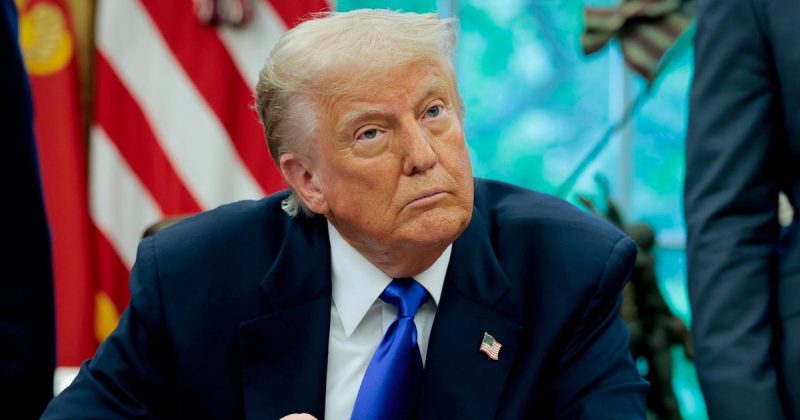
President Donald Trump signed the bipartisan “Take it Down Act” into law, marking a significant step in combating the non-consensual online distribution of explicit images and videos. This legislation targets both authentic and AI-generated deepfakes, imposing hefty penalties on those who create and distribute such material. The bill mandates that online platforms remove this content within 48 hours of a victim’s request, a crucial measure to curb the spread of harmful material.
The Act’s swift passage through both the House and Senate underscores the bipartisan concern over this growing issue. The House overwhelmingly approved the bill with a 409-2 vote, demonstrating a strong consensus across party lines. The Senate’s unanimous consent further highlights the urgency and importance of addressing this form of online abuse.
First Lady Melania Trump played a significant role in the bill’s passage, actively engaging with lawmakers and advocates. Her efforts underscore the administration’s commitment to protecting individuals from the devastating consequences of non-consensual pornography. She has publicly expressed concern over the impact of online abuse on young people, particularly girls, highlighting the need for a safe online environment.
This is only the sixth bill President Trump has signed into law during his second term, a fact that has drawn some attention. The low number compared to previous administrations highlights the challenges faced by the current legislative landscape. However, the significance of the “Take it Down Act” transcends the number of bills signed, representing a vital step toward improving online safety and protecting victims of this egregious form of abuse.
While many states already have laws addressing revenge porn, this federal legislation provides a consistent, nationwide approach with standardized penalties. The Act aims to address the gaps in existing state laws and create a more unified front in combating this pervasive problem. The inclusion of provisions for threats to publish such material also demonstrates a proactive approach to preventing harm before it occurs.
President Trump’s signing of this bill, while politically significant, represents a meaningful victory for victims of online exploitation. The Act’s impact remains to be seen, but it signals a much-needed shift toward greater accountability and protection in the digital realm. The question now is how effectively the bill will be implemented and enforced to truly make a difference in the lives of those affected by this devastating form of abuse.










